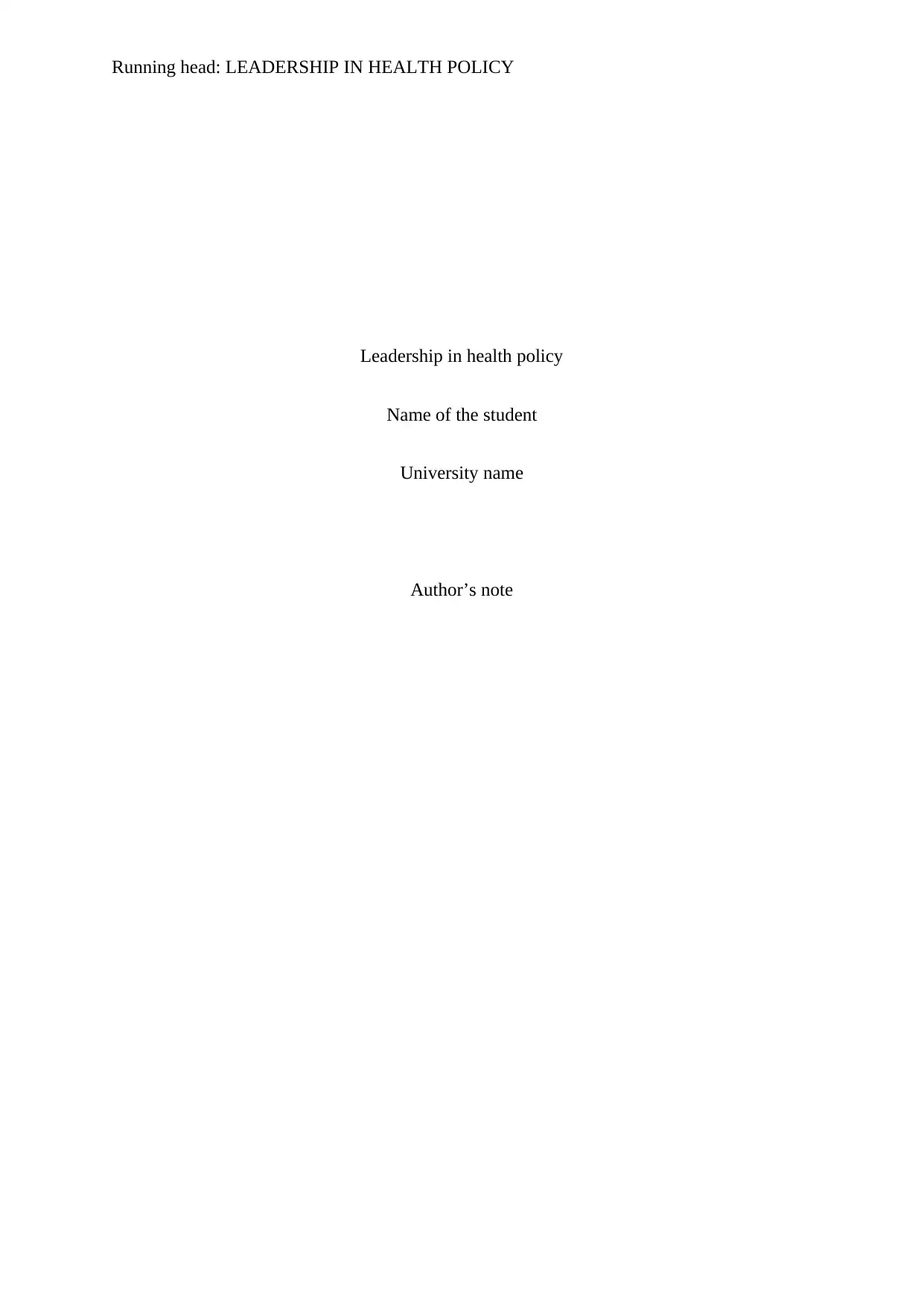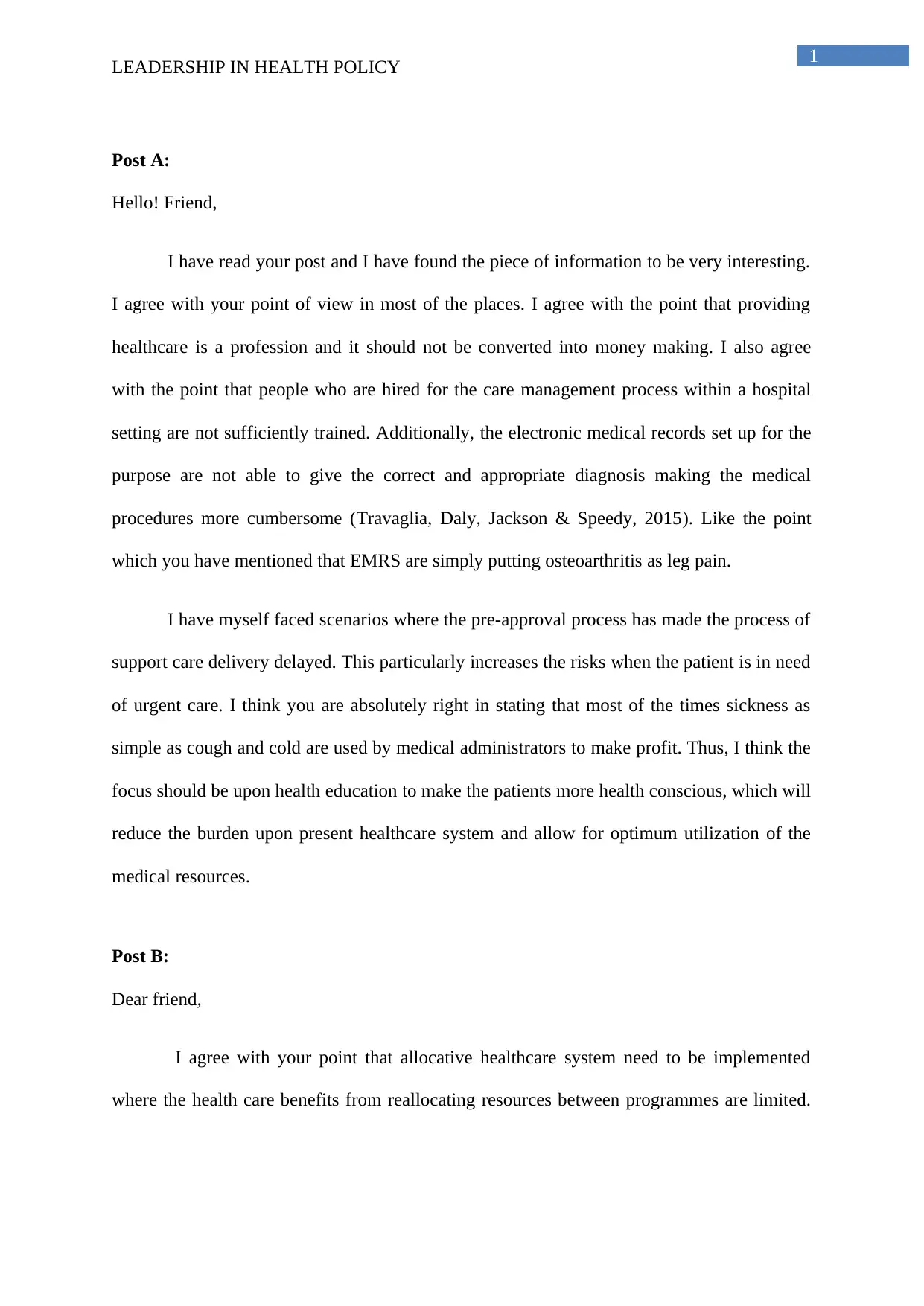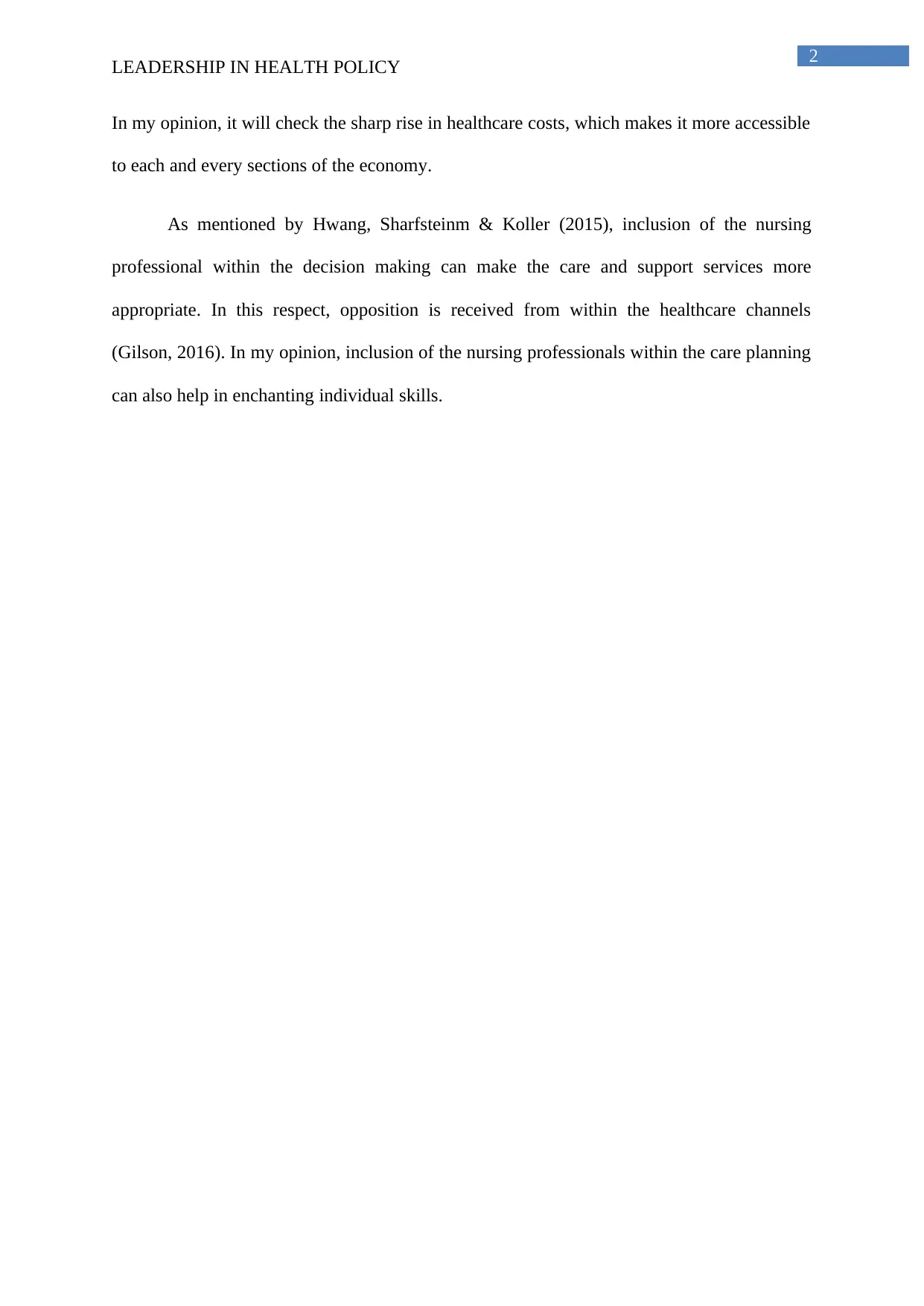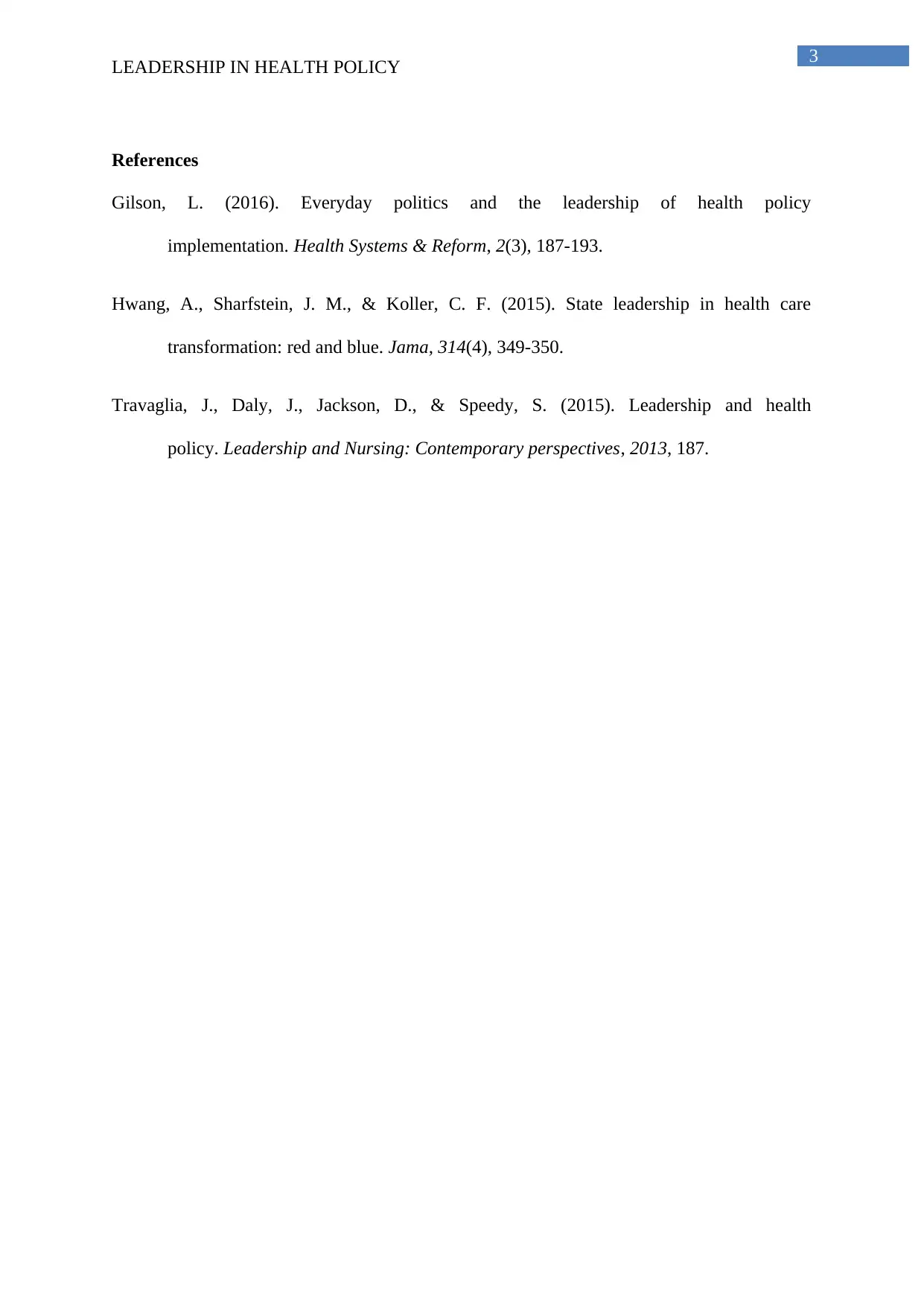Leadership in Health Policy: Student Discussion and Perspectives
VerifiedAdded on 2023/06/12
|4
|511
|343
Discussion Board Post
AI Summary
This discussion board post presents a student's perspective on leadership in health policy, engaging with two initial posts (A and B). The student agrees with Post A's emphasis on healthcare as a profession, the need for better-trained care managers, and the limitations of electronic medical records. They also concur that healthcare should focus on patient education to reduce the burden on the system. Responding to Post B, the student supports the implementation of an allocative healthcare system to control rising costs and advocates for the inclusion of nursing professionals in decision-making, despite potential opposition. The discussion highlights the importance of optimizing resource utilization, enhancing individual skills, and improving healthcare accessibility.
1 out of 4










![[object Object]](/_next/static/media/star-bottom.7253800d.svg)